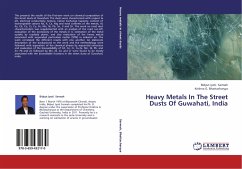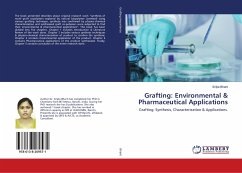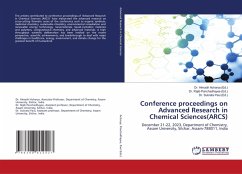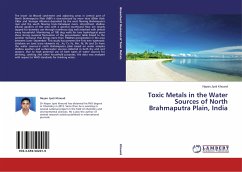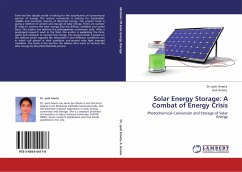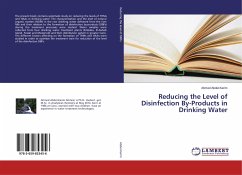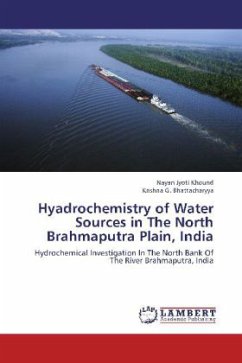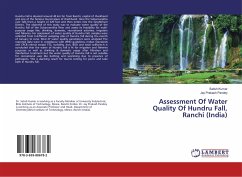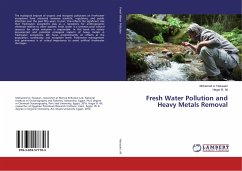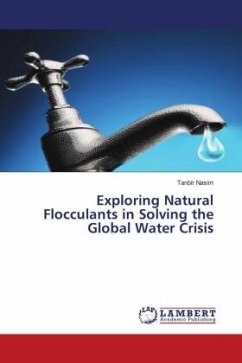
Exploring Natural Flocculants in Solving the Global Water Crisis
Versandkostenfrei!
Versandfertig in 6-10 Tagen
29,99 €
inkl. MwSt.

PAYBACK Punkte
15 °P sammeln!
The world is at the threshold of severe water crisis and the situation is going to be dreadful in the near future. The fresh water sources are also depleting very fast. In this scenario, treatment of waste water from domestic, agricultural and industrial origins is of great importance to deal with the water crisis. Reverse osmosis, UV purification and slow sand filtration are among the popular techniques used nowadays. but, all of thses methods have some drawbacks. Flocculation is a trivial yet a very easy and cost-effective process to remove undesirable particles from the waste water. It requ...
The world is at the threshold of severe water crisis and the situation is going to be dreadful in the near future. The fresh water sources are also depleting very fast. In this scenario, treatment of waste water from domestic, agricultural and industrial origins is of great importance to deal with the water crisis. Reverse osmosis, UV purification and slow sand filtration are among the popular techniques used nowadays. but, all of thses methods have some drawbacks. Flocculation is a trivial yet a very easy and cost-effective process to remove undesirable particles from the waste water. It requires a very few apparatuses and wastage of water is very minimal. Natural flocculants are of great interest now-a-days as these provide many advantages over synthetic flocculants such as cost-effective, readily available, low toxicity etc. Chitosan, Guar gum, Starch, Xanthan Gum, Moringa Oleifera etc are quite efficient as natural flocculants for water treatment process. This book deals withthe above-mentioned water crisis problem mainly in India and different methods to overcome this problem.





